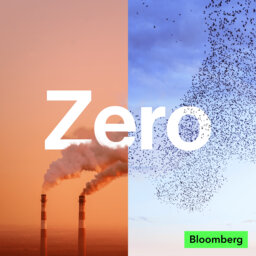How a fossil-fuel company became a wind giant, with Mads Nipper
The wind industry is exploding, growing from just 2% of global electricity supply to 7% in a decade. But to achieve net zero by 2050, we're going to need a lot more wind turbines, both on land and out at sea. On this week’s episode of Zero, Orsted CEO Mads Nipper tells Akshat Rathi how the company transformed itself from a fossil fuel giant into the world's largest developer of offshore wind power, and the challenges the industry faces. It’s not just a story of clear corporate strategy chasing an opportunity, but also of heavy government intervention and many happy accidents.
Read energy reporter Will Mathis’ story on the pressures faced by the wind industry here, and what 2023 has in store for renewables, here.
Want to know more about Orsted's story? Pre-order Akshat’s book, Climate Capitalism, here.
Zero is a production of Bloomberg Green. Our producer is Oscar Boyd and our senior producer is Christine Driscoll. Thoughts or suggestions? Email us at zeropod@bloomberg.net. For more coverage of climate change and solutions, visit https://www.bloomberg.com/green.
In 1 playlist(s)
Zero
Zero is about the tactics and technologies taking us to a world of zero emissions. Each week Bloombe…Social links
Follow podcast
Recent clips

Ethiopia’s fossil fuel car ban is a vision of the future
32:37

Do artists have a duty to be political? Imagine series
32:37

Electricity is now holding back growth across the global economy
39:13
 Zero
Zero